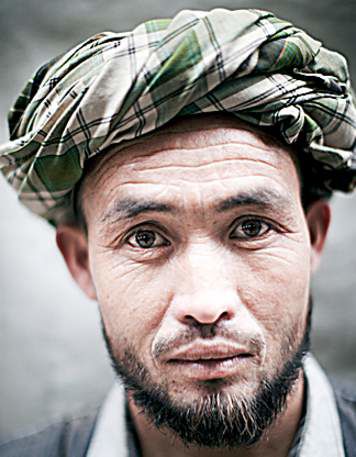Searches of turbans, symbols of identity, rattle many Afghans
Published 5:00 am Saturday, October 22, 2011

- After several attacks using explosives hidden in turbans, a rule on searching the headgear for weapons stirs anger among the turban-wearers of Afghanistan.
KABUL, Afghanistan — Straight-backed, his bearing almost regal, Malik Niaz, 82, entered the Afghan president’s compound this month proudly wearing his best turban: a silk one from Turkestan in the north of the country, gray and black and white, its long tail draped gracefully over his shoulder.
He watched in disbelief as the guard asked the elder ahead of him to remove his turban and lay it on the table. Niaz, who had journeyed more than eight hours on rugged roads, shuddered.
“That made us so embarrassed, and it made me so sad,” he said. “I felt dishonored when the guard said,” he hesitated, as if even recalling the words upset him, ” ‘undo your turban.” ”
“I had wanted to see the president,” he added, “but after that search, I thought it would have been better if I had not come.”
The turban-searching rule at President Hamid Karzai’s presidential palace has been rigorously enforced since the assassination of the head of Afghanistan’s peace process, Burhanuddin Rabbani, who was killed by a bomb hidden in the attacker’s turban.
It was the third such killing in four months, leading youths in Kabul to coin the word “Turbanator” and U.S. soldiers to invent the acronym TBIED, for turban-borne improvised explosive device.
The other two instances were the killing in July of Kandahar’s senior cleric as he prayed in a mosque, and a few weeks later the killing of Kandahar’s mayor.
The searches are deeply disturbing for most Afghan men, as the turban here at once signifies one’s religious faith and is a national dress — not to mention being something of a fashion statement.
Turbans are worn across the Muslim world because the Prophet Muhammad was believed to have worn one, and they are especially favored by imams and mullahs.
In Afghanistan, a deeply pious country, usage is broader, with dozens of styles and colors. There are ones made of synthetics from Pakistan that cost about $20, silk ones from Herat that cost twice as much and ones made of more luxuriant silks from the north of Afghanistan that cost still more. However, most turbans in Afghanistan now — and in the pre-Taliban era — are subtle grays and charcoals, deep olive greens, lighter soft greens and browns.
On the back streets of Kabul’s central bazaar, where the turbans are sold neatly folded, thin as a pamphlet and wrapped in torn pages from old glossy magazines, many turban wearers are so angry about the situation that they blame the Americans. Before their arrival, intrusive searches were unknown.
“My father, my grandfather, my great-grandfather, my prophet wore a turban, and that’s why I wear it,” said an older man, looking irritable at the question, adding: “Who brought these turban bombers and turban searchers? You did,” he said angrily, referring to Westerners.
Many clerics take a more contemplative view. Faith transcends costume, and a man can pray in any outfit as long as the prayer comes from the heart, but it is an honor to God to dress properly, said Abdul Raouf Nafee, the mullah at the Herati mosque in central Kabul.
As an example, he talked about butchers: “Even if their clothes are dirty with blood, they can pray and God will accept their prayers, but it’s kind of disrespectful. God likes beauty and organization, but he will accept your prayers,” Nafee said.
There is also a darker view of turban attacks: that the bombers were so distraught that their turbans’ holiness no longer mattered, and that they were forced to use any means available to take revenge on the Americans.
“Is it wrong to respond to the killings of the civilians that you do with your drones, that shoot from the air and do not even have pilots?” asked Hajji Ahmad Farid, a mullah and a conservative member of Parliament from an insurgent-dominated area of Kapisa province, near Kabul. “Think about why a man blows himself up: Some foreign soldiers go to his house and accuse him and tie his hands and dishonor him and search his wife and his daughters, and this poor man is just watching and can do nothing.
“When a man has lost his dignity, he does not care about his shawl or his turban.”






